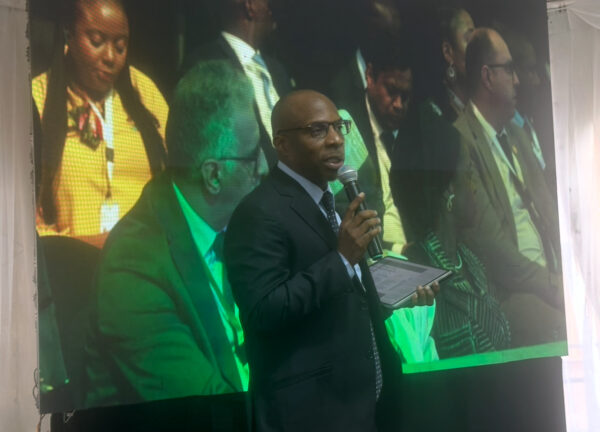Abuja, June 25, 2025 – One of the highlights of the first day of the Afreximbank Annual Meetings was the presentation of the joint economic report African Trade and Economic Outlook (ATEO) and African Trade Report (ATR) 2025, unveiled by Dr. Yemi Kale, Chief Economist and Managing Director in charge of research and international cooperation. This report provides a candid assessment, yet full of opportunities, of the African economy in an increasingly fragmented international context.
According to economists at the African Export-Import Bank, the continent recorded a growth of 3.3% in 2024, below pre-COVID levels but higher than forecasts. For 2025, the outlook is more optimistic with expected growth of 4%, driven by domestic consumption, increased investments, and improved trade integration within the African Continental Free Trade Area (AfCFTA). Some 41% of African economies are expected to grow at a rate exceeding 5%, nearly double the global average, confirming Africa’s emergence as a growth pole.
The analysis highlights several structural imbalances: persistent reliance on the dollar in trade, limited access to trade finance, and a global financial architecture that is not favorable to African economies. The continent faces an annual trade finance deficit estimated between 100 and 120 billion dollars, while prudential standards like Basel IV and rating biases hinder access to credit for African banks. In this context, Afreximbank advocates for strategic autonomy, based on strengthening African financial institutions, increased use of local currencies, development of suitable digital platforms, and expanding the use of PAPSS, the pan-African payment and settlement system, already adopted by 16 central banks.
On the trade front, the report applauds the rebound in intra-African trade, reaching 220.3 billion dollars in 2024, a 12.4% increase from 2023. However, this dynamic remains marginal: intra-African trade still represents only 14.4% of the continent’s total trade, a figure that illustrates the magnitude of the challenges ahead. Bureaucracy, delays in certifying rules of origin, inadequate infrastructure, high logistics costs, and limited financing continue to hinder the development of a true African domestic market.
Afreximbank calls for ambitious and coordinated reforms to transform this conjunctural resilience into structural sovereignty. This involves consolidating the AfCFTA beyond just tariff aspects, modernizing logistics chains, harmonizing regulatory frameworks, increasing support for SMEs, and expanding the role of African multilateral banks. The Bank alone has already injected 18.7 billion dollars in 2024 and aims for 40 billion by 2026, while mobilizing partners such as regional institutions and the Alliance of African Multilateral Financial Institutions (AAMFI), which foresee over 62 billion dollars in upcoming financing.
Dr. Kale concludes that in an increasingly multipolar world, Africa must act without delay, relying on its own strengths. Global fragmentation, far from being a hindrance, can become a strategic opportunity if approached with clarity, coordination, and determination. The time is no longer for dependence but for mastery: to have a say in global governance, finance its development, and transform its potential into real power.


